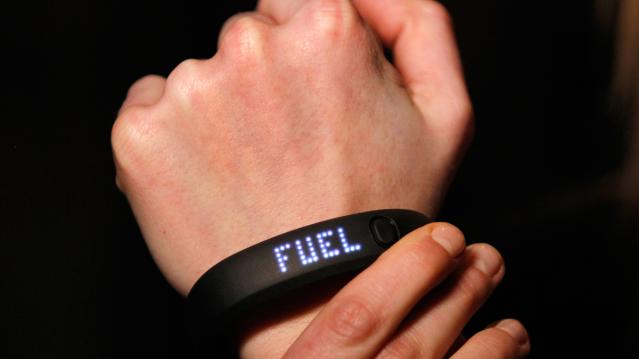In a Black Eye for Wearable Tech, Nike Giving Refunds for FuelBand

If you thought that the calorie count and steps tracked by your Nike FuelBand were inaccurate, you may have been right.
Nike and Apple have agreed to settle a class action lawsuit claiming that the companies made misleading statements regarding the product’s ability to accurately track calories and steps, according to a website maintained by settlement administrator Gilardi & Co.
The companies have denied the allegations and claim they broke no laws, but they have agreed to a settlement in which Nike will give consumers who join the class action suit by January $15 or a $25 Nike gift card. The total cost of the refunds could reach more than $2 million.
Related: Why No One is Actually Buying Wearable Tech
Anyone who purchased a FuelBand from January 19, 2012 through June 17, 2015 is eligible for the refund.
Last year, Nike began shifting its focus away from producing FuelBands, choosing instead to focus on apps, including one for the Apple watch, that support fitness tracking. The company has said it has more than 60 million digital fitness software users.
The FuelBand was an early entrant into what has become a crowded field or wearable fitness trackers, despite questions about their accuracy. However smart watches, which offer built-in fitness trackers along with other apps, may soon eclipse the demand for that standalone products.
A report released last year by tech analysts Juniper Research projected that revenue from wearable tech, would increase from $4.5 billion in 2014 to more than $53 billion in 2019.
Deficit Hits $738.6 Billion in First 8 Months of Fiscal Year

The U.S. budget deficit grew to $738.6 billion in the first eight months of the current fiscal year – an increase of $206 billion, or 38.8%, over the deficit recorded during the same period a year earlier. Bloomberg’s Sarah McGregor notes that the big increase occurred despite a jump in tariff revenues, which have nearly doubled to $44.9 billion so far this fiscal year. But that increase, which contributed to an overall increase in revenues of 2.3%, was not enough to make up for the reduced revenues from the Republican tax cuts and a 9.3% increase in government spending.
Tweet of the Day: Revenues or Spending?

Rep. Kevin Brady (R-TX), ranking member of the House Ways and Means Committee and one of the authors of the 2017 Republican tax overhaul, told The Washington Post’s Heather Long Tuesday that the budget deficit is driven by excess spending, not a shortfall in revenues in the wake of the tax cuts. The Wall Street Journal’s Kate Davidson provided some inconvenient facts for Brady’s claim in a tweet, pointing out that government revenues as a share of GDP have fallen significantly since 2015, while spending has remained more or less constant.
Chart of the Day: The Decline in IRS Audits

Reviewing the recent annual report on tax statistics from the IRS, Robert Weinberger of the Tax Policy Center says it “tells a story of shrinking staff, fewer audits, and less customer service.” The agency had 22% fewer personnel in 2018 than it did in 2010, and its enforcement budget has fallen by nearly $1 billion, Weinberger writes. One obvious effect of the budget cuts has been a sharp reduction in the number of audits the agency has performed annually, which you can see in the chart below.
Number of the Day: $102 Million

President Trump’s golf playing has cost taxpayers $102 million in extra travel and security expenses, according to an analysis by the left-leaning HuffPost news site.
“The $102 million total to date spent on Trump’s presidential golfing represents 255 times the annual presidential salary he volunteered not to take. It is more than three times the cost of special counsel Robert Mueller’s investigation that Trump continually complains about. It would fund for six years the Special Olympics program that Trump’s proposed budget had originally cut to save money,” HuffPost’s S.V. Date writes.
Date says the White House did not respond to HuffPost’s requests for comment.
Americans See Tax-Paying as a Duty

The IRS may not be conducting audits like it used to, but according to the agency’s Data Book for 2018, most Americans still believe it’s not acceptable to cheat on your taxes. About 67% of respondents to an IRS opinion survey “completely agree” that it’s a civic duty to pay “a fair share of taxes,” and another 26% “mostly agree,” bringing the total in agreement to over 90%. Accounting Today says that attitude has been pretty consistent over the last decade.



